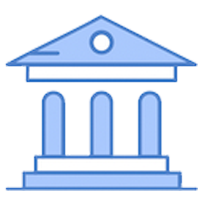Sustainable University Leadership and Governance Program

Educational authorities involved

Training hours

Renewed Institutional Strategic Plans

Universities
Higher education institutions play a fundamental role in the training of future professionals, responding to global challenges and a changing world. International agreements, governmental and from different sectors have agreed on this challenge and have developed commitments that seek to facilitate the transition towards university sustainability, identifying mobilizing actions that must be taken to ensure quality education, collaborate in reducing the degradation of the natural environment, favor regeneration, care for ecosystems and the permanence of humanity.
The course “Leadership and sustainable university governance. Road towards the 2030 Agenda” is part of the Leadership, Management and Training Program for Sustainable Higher Education (ESS) developed by the UNESCO International Institute for Higher Education in Latin America and the Caribbean (IESALC) and developed from the IESALC Campus platform.
The main purpose of this program is to build capacities in institutions to support their sustainable transformation process. To this end, universities generate joint synergies, putting their capacities and international networks at the service of developing and strengthening the urgent efforts towards sustainability and quality education for all.
General objectives
Phases
Face-to-face component
A series of reflection and collaborative work sessions were held at Casa de América, Madrid, Spain, with the participation of the rectors and representatives of the participating universities. During these sessions, experiences were exchanged with two leading universities in the implementation of a strategy aimed at achieving the goals of the 2030 Agenda, in order to learn first-hand about the implementation model. Finally, the institutional commitment document was signed in favor of the alliance of universities for sustainability.
Virtual component
During the activities planned within the virtual course, first a self-diagnosis of the level of maturity of the institution (teaching and learning, governance, research and social leadership) in terms of sustainability was carried out, in order to establish the baseline of work with each of the participating institutions. Subsequently, the training began through synchronous and asynchronous virtual sessions, where they learned about integrative models of the SDGs and discussed with experts to strengthen their own Institutional Strategic Plan (ISP) with a view to sustainability.
At the end of each module, participants worked on the sections corresponding to the IAP, based on the reflections made in each module. Afterwards, a roadmap was created with the activities and goals established for 2024, which will be followed up and monitored within 6 months after the end of the course. After this time, a new meeting is expected to be held to share progress and measure impact. All the training was accompanied by mentors for the articulation of the institutional roadmap. Throughout the eight weeks, the university team, composed of the rector and two leading university managers, participated in virtual activities with world experts and mentoring sessions, to learn first-hand about good practices aimed at implementing sustainability, within its Institutional Strategic Plan as an articulating axis to respond to the 2030 Agenda.
Training modules
Linking sustainability to the university’s strategic axes – teaching, social projection, internationalization, research, governance, where and how do the priorities of my university connect with sustainability?
This module provides a clear vision of how universities can contribute to implementing the SDGs through their own functions such as: education, research, governance and social leadership..
This module will delve into the leadership model needed to strengthen strategic planning processes and thus sustainability.
Using their unique position within society, universities, both individually and collectively, can help lead, guide, and support local, national, and international responses to the SDGs.
Certification
Obtaining the certification and digital badge was based on active participation and attending at least 80% of the videoconference sessions, as well as the completion of a final project on how to implement the Roadmap in their university based on the deliverables provided in each module. At no point in the course did we seek to evaluate participants on the content. Our main objective is to make the knowledge available to the rectors in order to generate a deep transformation process.
Relevant news

















